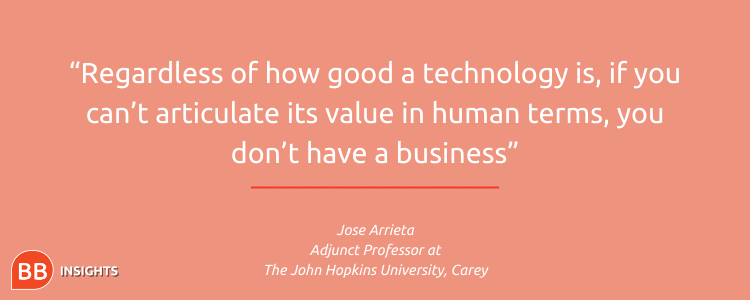Blockchain has great potential when it comes to securing digital assets and combating fraudulent activity, which has surged amid the coronavirus pandemic.
According to IBM executive Jesus Mantas, there has been a 6,000% increase in COVID-related spam since the pandemic began, leaving many vulnerable to phishing and scams that their bank accounts need protection from.
Casey Evans, blockchain expert and professor of finance and accounting at American University’s Kogod School of Business, says blockchain technology can help fraud detection because it enables the sharing of information in real-time and all participants in a blockchain have visibility over transactions.
One of Casey’s goals is to educate future business leaders on the anti-fraud applications of blockchain. She teaches Kogod MBA students about the technology and has developed a Graduate Certificate in Forensic Accounting, which encourages professionals to expand their knowledge in an exciting field. The course focuses on fraud schemes, financial reporting, valuation and financial statement analysis, helping students get a full picture of fraud and accounting.
BusinessBecause caught up with Casey and Kogod MBA alum and fellow blockchain expert Jose Arrieta (below) to find out more about the challenges blockchain faces when it comes to fraud prevention.
Lack of awareness and education
Blockchain remains enigmatic with 25% of Americans unsure what it actually means or how it works according to Vorhaus Advisors. This is a serious challenge that business schools are trying to tackle.
“At American University, we have two MBA elective classes that students can take to better understand blockchain. When they know the basics of how fraud works, they look at everything with a whole new lens”, Casey shares.
Kogod also hosts an annual Blockchain Forum which is an education and research-based initiative focusing on blockchain applications in business.
For Jose, a former Kogod student who’s now an adjunct professor in blockchain at Johns Hopkins University, the Kogod MBA offered some important insights into how tech innovation can impact business.
“My MBA didn’t teach me about coding or encryption, but it taught me to look at the technology and create and prepare a business argument about how the technology would affect the business model,” he explains.
“Regardless of how good a technology is, if you can’t articulate its value in human terms, you don’t have a business”.

Limited uptake
Although many organizations are starting to use blockchain it’s still not industry standard, and has limited uptake, with some companies being reluctant to dive into the unknown.
Kogod is working to educate students on blockchain, enabling them to revolutionize the use of this technology.
After completing his MBA at Kogod, Jose worked his way into the federal government and used blockchain to bring huge databases and supply chains together in the first functioning blockchain of its kind in the United States.
Jose’s development was fast-tracked in his MBA, as he was immersed in a diverse cohort where community and communication were highly valued, he says.
The communication skills he built prepared him for a career bringing together individuals and corporations through blockchains. Jose has been a key facilitator in the creation of broad networks of traceable links that fight fraud.
However, many companies are not yet securing their assets with blockchain, leaving them vulnerable. This technology is still new, and to keep companies safe, it must spread.
Lack of regulation
Powered by blockchain technology, bitcoin is one of the most well-known cryptocurrencies, that despite the transparent nature of blockchain, can offer you anonymity. Bitcoin is the most accessible part of the blockchain and investors and consumers are getting in on the bitcoin boom.
But being decentralized there’s no regulation for cryptocurrencies like bitcoin yet and its dispersal into the consumer market has led to a whole host of issues.
With the commercialization of bitcoin, you can see “pyramid schemes around blockchain with people using those initial coin offerings that essentially go bad because you hear about falsified documents, fake business plans, all created to entice people who don’t know a lot about how blockchain works and just want in”, Casey explains.
Without market regulation, these very tools for preventing fraud can be used to perpetrate it.
Casey sheds some light on this: “Regulators are starting to get clued in, but the lack of regulations still causes a lot of issues. Bitcoin is still relatively new in terms of trying to figure out how to combat fraud against it, because you really follow the same steps that you would for any fraud, by just trying to create awareness”.
With broader blockchain education, corporate use, and regulation, it could evolve even further to protect consumers and businesses alike.
Business schools like Kogod are playing a role in tackling the challenges blockchain faces, widening awareness of blockchain technology and creating the next generation of industry experts who can help blockchain better prevent fraud.
BB Insights explores the latest research and trends from the business school classroom, drawing on the expertise of world-leading professors to inspire and inform current and future leaders



